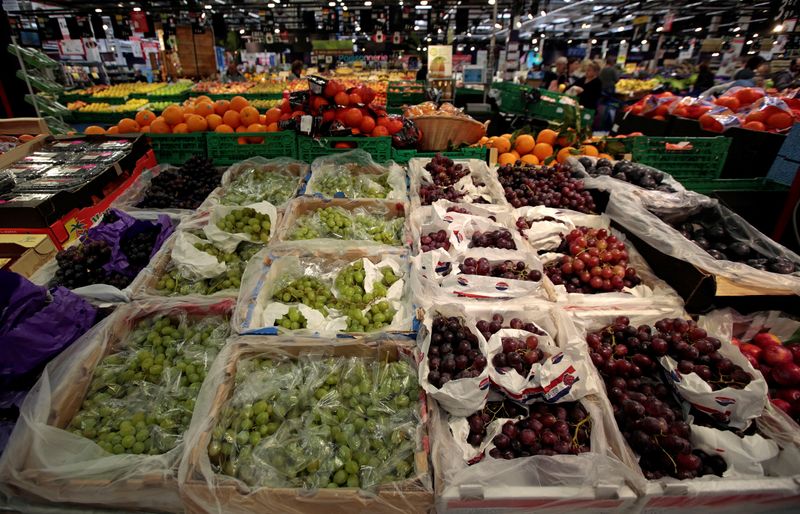PARIS (Reuters) - French inflation should decline in the coming months slightly more than expected as food price pressures ease, the national statistics agency said on Thursday, while forecasting meagre economic growth in the second half of this year.
The euro zone's second biggest economy is set to grow 0.1% in the third quarter from the previous three months and 0.2% in the fourth quarter, INSEE said in its latest outlook.
While INSEE left its quarterly growth forecasts unchanged from its last outlook in June, it raised its 2023 growth estimate to 0.9% from 0.6% previously after quarterly growth in the second quarter came out stronger than expected at 0.5%.
Despite the upgrade, the 2023 forecast remains a touch below the 1% growth estimate that the government has based its budget on for this year.
INSEE said that consumer spending would firm in the second half of the year as food price inflation eased, helping to offset weaker business investment, hit by rising interest rates.
Inflation was forecast to ease from 4.8% in August to 4.2% in December as food price rises declined from 11.1% in August to 7.2%. In its June outlook, INSEE had forecast France would finish the year with an inflation rate at 4.4%.

Surging food prices have become a major headache for French consumers this year, with 47% of households surveyed by INSEE in a poll in June reporting they had adapted their behaviour to cope, including 14% simply cutting back on how much they eat.
The increase has weighed on overall inflation and forced the government to strong-arm retailers and food producers to commit to price cuts and return early annual price negotiations.